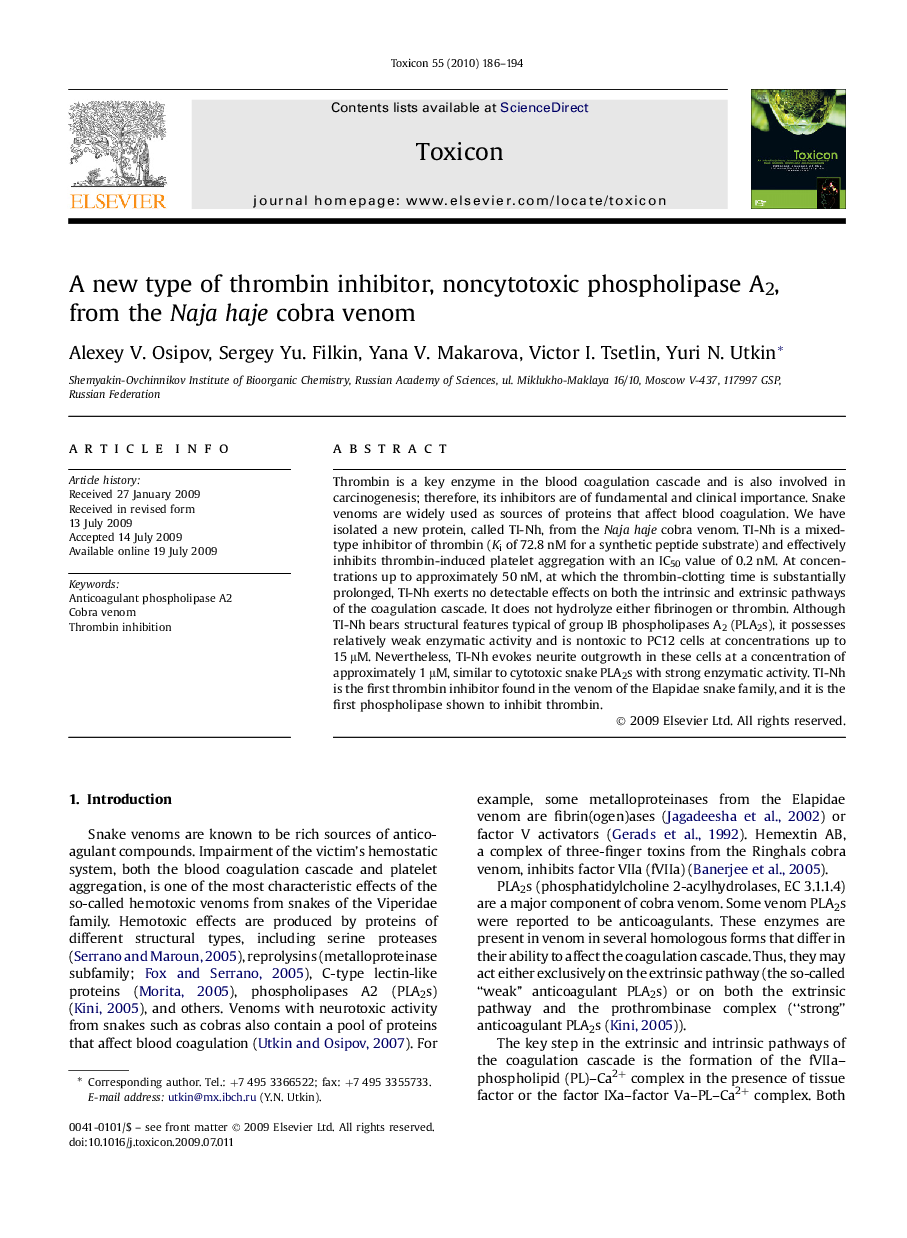| Article ID | Journal | Published Year | Pages | File Type |
|---|---|---|---|---|
| 2065310 | Toxicon | 2010 | 9 Pages |
Thrombin is a key enzyme in the blood coagulation cascade and is also involved in carcinogenesis; therefore, its inhibitors are of fundamental and clinical importance. Snake venoms are widely used as sources of proteins that affect blood coagulation. We have isolated a new protein, called TI-Nh, from the Naja haje cobra venom. TI-Nh is a mixed-type inhibitor of thrombin (Ki of 72.8 nM for a synthetic peptide substrate) and effectively inhibits thrombin-induced platelet aggregation with an IC50 value of 0.2 nM. At concentrations up to approximately 50 nM, at which the thrombin-clotting time is substantially prolonged, TI-Nh exerts no detectable effects on both the intrinsic and extrinsic pathways of the coagulation cascade. It does not hydrolyze either fibrinogen or thrombin. Although TI-Nh bears structural features typical of group IB phospholipases A2 (PLA2s), it possesses relatively weak enzymatic activity and is nontoxic to PC12 cells at concentrations up to 15 μM. Nevertheless, TI-Nh evokes neurite outgrowth in these cells at a concentration of approximately 1 μM, similar to cytotoxic snake PLA2s with strong enzymatic activity. TI-Nh is the first thrombin inhibitor found in the venom of the Elapidae snake family, and it is the first phospholipase shown to inhibit thrombin.
